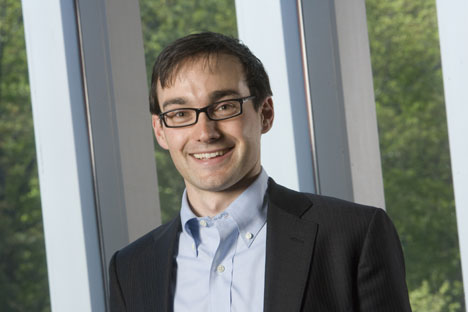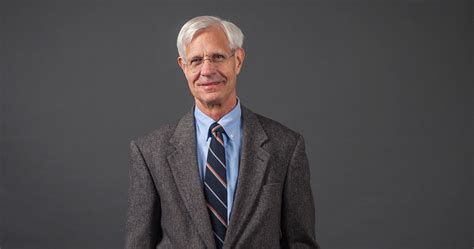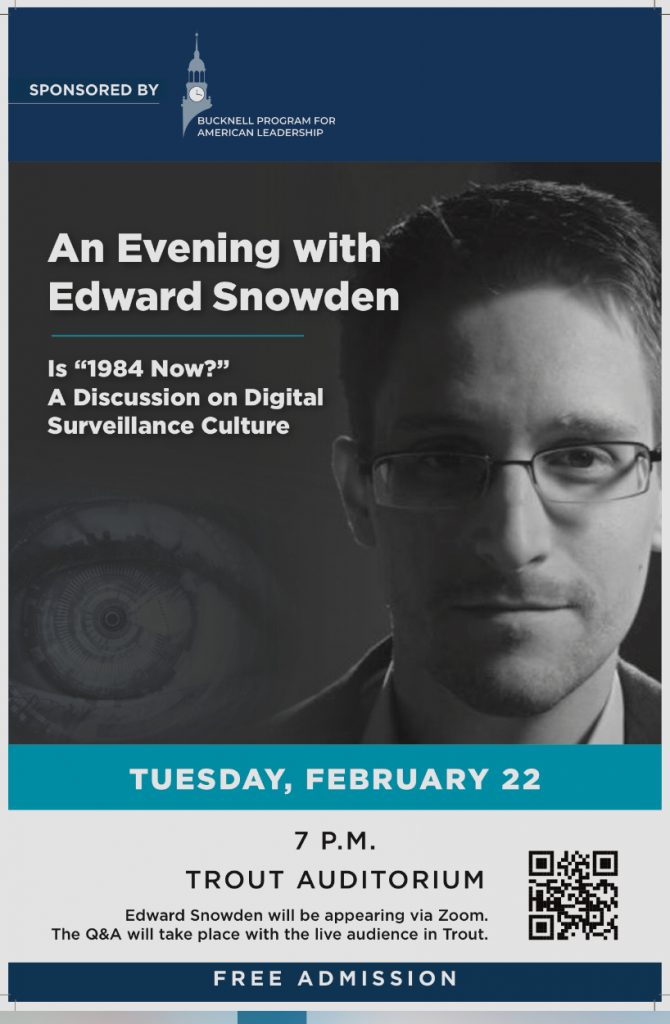Category: Uncategorized
“Culture and the Constitution:
The Right to Bear Arms and the Bruen Case“
Tues. Nov. 15, 7 p.m., Elaine Langone Forum
For the first time in recent memory, a forum at Bucknell features two prominent scholars of the Second Amendment debating it and gun issues. Prof. Joseph Blocher of Duke Law School (top below) and Prof. Nelson Lund (bottom below) of Scalia Law School at George Mason will discuss whether/how the right to bear arms is a relevant constitutional “check and balance” today, what type of gun-control regulations are permissible under the Second Amendment in light of SCOTUS trends, and where issues about “gun rights” and “gun control” will lead in 21st-century America life.
Whether you are in favor of the right to bear arms or the right to arm bears, don’t miss what promises to be substantive expert discussion from different perspectives on a controversial topic: The role of guns in the culture of the American republic.


About the series: The recent death of Queen Elizabeth II reminded many of the symbolic Venn diagram between culture and government. The US Constitution in many ways performs that symbolic function in America, a focus today for both unity and division over historical memory and social aspirations. This series seeks to shed light on the relation of the Constitution to culture in the twenty-first century, especially through the lens of recent controversial SCOTUS decisions, while helping to bring balance to the spectrum of views available on campus and in the local community.
Hosted by the Bucknell Program for American Leadership, a faculty-staff association, with generous support from the Open Discourse Coalition, an alumni association.
OCTOBER 12, 2022 / PAUL SIEWERS / EDIT
Trout Auditorium, Wed. Oct. 19, 7 to 8:30 p.m.
A kickoff to a series of programs examining the complex relation between American culture and the Constitution from different perspectives, through the lens of recent controversial SCOTUS decisions. The panel includes intellectually important supporters and opponents of abortion assessing the significance of the Dobbs decision.
Ryan Anderson, Ph,D. President of the Ethics and Public Policy Center, co-author of Tearing Us Apart: How Abortion Harms Everything and Solves Nothing. A scholar of “new natural law,” among other books, his research has been cited by Justices in two U.S. Supreme Court cases. A graduate of Princeton he received his Ph.D. in political philosophy from the University of Notre Dame. He has appeared on ABC, CNN, CNBC, MSNBC, and Fox News. His work has been published by Cambridge University Press and The New York Times among other venues. He is the John Paul II Teaching Fellow in Social Thought at the University of Dallas.
Alexandra DeSanctis. A writer who focuses on culture and family issues, with a particular focus on abortion policy and pro-life advocacy, she is a staff writer of the National Review, co-author of Tearing Us Apart: How Abortion Harms Everything and Solves Nothing, and an Ethics and Public Policy Center Fellow. Her writing has eppeared in The New York Times, The Wall Street Journal, The Washington Post, and The Atlantic among other venues.
Kristin Luker. Professor Emeritus of Sociology and former Elizabeht Boalt Professor of Law at the University of California at Berkeley, she is the author of many scholarly articles and six books, including Taking Chances: Abortion and the Decision Not to Contracept, and Abortion and the Politics of Motherhood. Her interests include sexual and reproductive behavior, gender, and the relationship between gender and the history of the social sciences in the United States and elsewhere. She is founder of the Center on Reproductive Rights And Justice at Berkeley.
Louise Perry. Research Director and Co-founder of The Other Half, a non-partisan feminist think tank in the UK, she is press officer for the campaign group We Can’t Consent to This, which documents cases of fatal violence against women, a columnist for the New Statesman and feature writer for the Daily Mail. Her debut book, The Case Against the Sexual Revolution: A New Guide to Sex in the 21st Century, appeared this year.
About the series: The recent death of Queen Elizabeth II reminded many of the symbolic Venn diagram between culture and government. The US Constitution in many ways performs that symbolic function in America, a focus today for both unity and division over historical memory and social aspirations. This series seeks to shed light on the relation of the Constitution to culture in the twenty-first century, while helping to bring balance to the spectrum of views available on campus.
Sponsored by the Bucknell Program for American Leadership with generous support from the Open Discourse Coalition
Trout Auditorium, Wed. Oct. 19, 7 to 8:30 p.m.
A kickoff to a series of programs examining the complex relation between American culture and the Constitution from different perspectives, through the lens of recent controversial SCOTUS decisions. The panel includes intellectually important supporters and opponents of abortion assessing the significance of the Dobbs decision.
Ryan Anderson, Ph,D. President of the Ethics and Public Policy Center, co-author of Tearing Us Apart: How Abortion Harms Everything and Solves Nothing. A scholar of “new natural law,” among other books, his research has been cited by Justices in two U.S. Supreme Court cases. A graduate of Princeton he received his Ph.D. in political philosophy from the University of Notre Dame. He has appeared on ABC, CNN, CNBC, MSNBC, and Fox News. His work has been published by Cambridge University Press and The New York Times among other venues. He is the John Paul II Teaching Fellow in Social Thought at the University of Dallas.
Alexandra DeSanctis. A writer who focuses on culture and family issues, with a particular focus on abortion policy and pro-life advocacy, she is a staff writer of the National Review, co-author of Tearing Us Apart: How Abortion Harms Everything and Solves Nothing, and an Ethics and Public Policy Center Fellow. Her writing has eppeared in The New York Times, The Wall Street Journal, The Washington Post, and The Atlantic among other venues.
Kristin Luker. Professor Emeritus of Sociology and former Elizabeht Boalt Professor of Law at the University of California at Berkeley, she is the author of many scholarly articles and six books, including Taking Chances: Abortion and the Decision Not to Contracept, and Abortion and the Politics of Motherhood. Her interests include sexual and reproductive behavior, gender, and the relationship between gender and the history of the social sciences in the United States and elsewhere. She is founder of the Center on Reproductive Rights And Justice at Berkeley.
Louise Perry. Research Director and Co-founder of The Other Half, a non-partisan feminist think tank in the UK, she is press officer for the campaign group We Can’t Consent to This, which documents cases of fatal violence against women, a columnist for the New Statesman and feature writer for the Daily Mail. Her debut book, The Case Against the Sexual Revolution: A New Guide to Sex in the 21st Century, appeared this year.
About the series: The recent death of Queen Elizabeth II reminded many of the symbolic Venn diagram between culture and government. The US Constitution in many ways performs that symbolic function in America, a focus today for both unity and division over historical memory and social aspirations. This series seeks to shed light on the relation of the Constitution to culture in the twenty-first century, while helping to bring balance to the spectrum of views available on campus.
Sponsored by the Bucknell Program for American Leadership with generous support from the Open Discourse Coalition
Constitution Day Event

COVID Facts in an Age of Disinformation, a discussion with former FDA commissioner Dr. Scott Gotlieb and Dr. Marty Makary ’93 of Johns Hopkins University, held April 7, 2022, on the Bucknell campus.
Attorney and author Geoff Shepard, author of The Nixon Conspiracy and other books, reflects on the 50th anniversary of Watergate through the eyes of his own experience as a young disillusioned Nixon White House staffer and then a long-term researcher into previously undisclosed documentation of official investigations. (Feb. 16, 2022, at Bucknell)
Prof. Paul Kengor of Grove City College, author of The Devil and Karl Marx and A Pope and a President among many books, discussed Karl Marx’s antipathy toward traditional faith and its inspiration of conflict in modern “culture wars” globally across the past century, from the U.S. to the Ukraine and beyond, on Thurs. March 24 at a “deep-think pizza” campus event.
Marx famously called religion “the opium of the people” and his philosophy highlighted atheism as a supposed hallmark of “scientific” economics and social policy. But this also relates fascinatingly to Marx’s own personal obsession with the Devil and hell as researched by Kengor. “Thus Heaven I’ve forfeited, I know it full well,” the famous political philosopher and economist wrote in a poem in 1837, a decade before his Manifesto. “My soul, once true to God, is chosen for Hell.” Kengor concludes, “That certainly seemed to be the perverse destiny for Marx’s ideology, which consigned to death over 100 million souls in the twentieth century alone.” In his study, Kengor raised a question posed earlier by the Russian writer Fyodor Dostoevsky in his book Demons: When deadly systems (such as also Nazism) take so many human lives, does the metaphoric description of “demonic” have a literal side?
Co-sponsored by the Bucknell Program for American Leadership and Catholic Campus Ministry, with generous support from the Open Discourse Coalition.
Free Speech at Bucknell
From an article that appeared this week at Princetonians for Free Expression.
***
Bucknell University’s faculty recently voted down a free-speech motion. It was a ritual slaying.
By anonymous vote, professors opted 191 to 31 to prevent any discussion of the motion, and to require a super-majority to resurrect it in future, by postponing it indefinitely.
In doing so, faculty at the highly ranked liberal-arts university in central Pennsylvania sought to put a stake in the heart of what are known as the University of Chicago Principles, which call for universities to allow free speech of all kinds except such “unprotected speech” as threats, harassment, and libel.
Despite 80-plus other institutions having adopted the Chicago Principles and leading Bucknell alumni supporting the measure, Bucknell faculty members made themselves outliers from their own university’s values, given that its mission statement calls for support of “different cultures and diverse perspectives.”
But the Bucknell professors also provided an extreme caricature of what faculty culture in America has become today in the eyes of many: Narrowly ideological, intellectually xenophobic, and passively-aggressively policing others’ views.
More and more Americans view such privileged U.S. educators as willing to destroy the liberal-arts tradition and American civil culture for the sake of ideological dogmas and their own status.
The Bucknell proposal was brought up to the faculty once before, in 2017, by faculty sponsors of varied political views. At that time it was tabled indefinitely, purportedly to avoid “negative publicity” from a direct “No” vote, after the university counsel had intervened to call it unnecessary. But a parliamentary flaw in that tabling allowed it to be brought back in 2022 after a delay during the Covid era.
Just how needed the motion remains was seen last fall, when University of Toronto psychologist and bestselling writer Jordan Peterson visited Bucknell, his first public appearance anywhere in more than two years. A newsworthy if controversial event, Peterson’s talk was preceded by custodians prying the Bucknell seal off the podium, and an information blackout from university public relations staff.
On the night of Peterson’s talk, many students were reportedly prevented from getting seats in the auditorium by activist faculty who urged their own students to reserve tickets online and then not show up, leaving empty seats. An estimated 250 of 600 available reserved seats were kept empty while a long line of students and community members waited outside.
University police responded by opening balconies closed due to campus Covid restrictions, to allow entry to those who were waiting. But some had already gone to a remote overflow location or returned to their dorms.
While this was reported at the opening of the program, and circulated later on a video of the event, there were no challenges or denials to the report, and no statement or inquiry apparently by the institution.
In this new kind of higher-ed “social credit” system, the faculty are would-be enforcers of politicized morals, and students are the main losers.
The Chicago Principles vote last month was preceded by broadcast and circulation of a 90-minute webinar explaining the need to highlight free speech on campus. It included educational and developmental reasons for allowing college-age students to engage with different views, and how that fits Bucknell’s mission statement to make students and faculty of different backgrounds and viewpoints feel welcome. The last half of the webinar featured appearances by free-speech advocates Profs. Robert George of Princeton and Cornel West of Union Theological Seminary, addressing the integral relation of free speech and the liberal arts, and to a spiritual culture of humility needed at universities. Cultural humility is not the virtue that comes to mind to describe privileged American academics, however.
At Bucknell, the last two known surveys of faculty politics tell part of the story. In 2014, a university survey of Bucknell faculty indicated that 70 percent identified as liberal or far left politically, and only 9% as conservative and far right. In 2015, a student journalism-class investigation of county records showed that 74% of Bucknell faculty in Bucknell’s county were registered as Democrats, 6% as Republicans.
Those percentages have undoubtedly grown more lopsided since. While the data are political indicators, they suggest inhospitableness toward those whose religious and ethnic cultures don’t share progressive American political values.
Examples abound. When Prof. Shelby Steele of Stanford’s Hoover Institution debated Prof. John Fountain of Roosevelt University in Chicago in 2020 in a webinar for the Bucknell campus, as two African-American scholars debating the utility and truth of the concept of systemic racism, faculty critics commandeered the university’s online announcement center to denounce the event and me personally as racist. To even apply critical thinking to the model of systemic racism was racist, they argued. The university apparently took no action against them, beyond instituting a stronger screening system for announcements.
In 2019, conservative scholar Heather MacDonald of the Manhattan Institute had appeared on campus. Some faculty and administrators helped organize meetings, a protest, and a counter-event, apparently so that students wouldn’t be tempted to hear her. Students with encouragement of administrative staff spoke of the need to ostracize peers involved in the event, and publicly called for firing the faculty involved. The administrator in charge of diversity policy (which is supposed to include counteracting religious bias) reportedly told the counter-event protesters that “Christian values” are “originators” of white supremacy.
Because the administrator was speaking with the title of diversity administrator charged with adjudicating issues of religious bias, a Catholic student at the historically liberal Anglo-Protestant and now secular campus filed a bias complaint as part of a university reporting system. He reports that he has not even received an acknowledgement.
I was approached by a distressed first-year student this fall, a conservative Catholic, who since dropped out due to the ideology of the faculty and its shadow over campus. A Black student from Africa told me he withdrew from Bucknell for similar reasons while fighting related depression. A second African student told me of how uncomfortable and alien he was made to feel by efforts to assimilate international students of color into the Bucknell faculty-staff ideology, regardless of different individual views and cultural traditions.
This is not to mention how professors have felt ostracized and even pushed out of the university because of faculty-staff group-think. The latter intrudes into the business of the university by ostracizing those with different views and gifts to offer in serving students.
Bucknell’s majority white-American faculty seem uninterested in any real response to such different voices. The cynical might say many are “virtue signaling.” The blocking of debate on the Chicago Principles was led by a white professor whose department recently had protested losing a position to diversity hires and was trying hard to show its commitment to diversity. But arguments that the Chicago Principles are racist were belied by the presence of prominent African-American activist and scholar Cornel West on the video webinar produced by supporters, extolling free-speech efforts at Bucknell, and by the text of the motion itself.
Other arguments that the motion was unnecessary are belied by the Peterson incident and others like it, the experience of non-conforming students and faculty, and the fact that existing language in the university’s Faculty Handbook is not as embracing of community free speech as the Chicago Principles, despite claims to the contrary by some faculty in trying to justify their opposition to the motion.
While many new texts produced by the university continually re-state and expand on older texts supporting diversity, the adding of one additional text highlighting free speech was labeled in effect pathologically obsessive and unnecessary by opponents in preventing debate.
Leading university donors, at a time when Bucknell is entering a major fundraising cycle, formed a non-profit entity, the Open Discourse Coalition (ODC), as a way to support the faculty free-speech movement organized as the Bucknell Program for American Leadership. But these efforts have met with opposition.
Last summer, activists posted a sign on the new ODC building near campus that read “Center for White Victimhood” and sent an anonymous hate letter to a faculty mailbox with the logo of the banner attached. Such acts are labeled humorous satire. That was also the “explanation” for labeling me (a Russian Orthodox clergyman) “Rasputin”—something done on social media with the support of three of my Bucknell faculty colleagues. The malicious context implied that like Rasputin I deserved to be erased, due to my cultural difference from faculty ideology, at a time of US-Russian hostility. It was a little like calling a Muslim faculty member Osama bin Laden after 9-11.
In the past few years I also have had my personal office belongings “accidentally” removed from Bucknell’s campus and put on the street, with a threat that they would be trashed by a colleague who earlier had said he blamed his divorce on his ex-wife’s interest in Orthodox Christianity. I was forced out of a department affiliation on campus after being singled out for unfair investigation of my free-speech activities as allegedly racist. Other unusual “coincidences” have included being removed from a planning committee by a last-minute rule change, and being the apparent subject of unusual curricular review and of attempted cancellation of a campus project I was coordinating.
Maybe that’s not surprising given that I’m often a visibly different person among our faculty (even pointed out as being such in a joke by a dean at a faculty meeting): The Russian Orthodox cleric with the long beard and hair wearing riassa and skufia, in a blended Russian-American family with children identifying as Russian. But my ostracism started when writing about religious freedom with regard to sexual and family anthropology in my Russian Orthodox tradition, out of line with Bucknell’s dominant secular progressive ideology. Yet attempted cancellation for my allegedly unethical Eastern Christian “gender expression” came from colleagues who seemed to tolerate other faculty who apparently without serious stigma engaged in activities such as sex with a student and unwanted personal attention to a colleague leading to distress.
Meanwhile children of faculty, including my own, have been cyber-bullied and physically bullied for being out of step with Bucknell-dominated community ideology in our small town.
Bucknell is a great university. It is an honor to work there and serve wonderful students. But the potential negative impact of out-of-control toxic faculty culture on students, their character and education, is corrosive. Princeton’s Robert George, on a visit to campus with Cornel West, hearing a complaint from a leftist student about the lack of “diverse perspectives” on campus, diagnosed the problem as “academic malpractice.”
The Bucknell student newspaper has covered these free-speech efforts negatively for the most part. A columnist wrote three articles critical of the Peterson event, in which she went from calling him “Jordan Peter-Sucks,” to bemoaning how Peterson as a powerful media figure allegedly had bullied her by re-tweeting her article with its epithet about him (garnering her much negative feedback). She attended the campus event, when attempted censorship of Peterson’s event was announced, but did not report on that. Instead she went on in a new column to blast the Chicago Principles in caricatured form. After the recent vote, a faculty critic of free-speech efforts (and open admirer of Lenin) boasted of his contacts among students at the paper. Coincidentally, the aforementioned writer is a major in his small program.
On all this the faculty motto seems to be: “Nothing to see here, move along.”
An Evening with Edward Snowden
A video recording of the event is here:
https://mediaspace.bucknell.edu/media/1_mhvj8z2y
The former American national-security consultant and now privacy advocate, engaged in live discussion with a Bucknell audience from his place of asylum in Moscow, on Tues. Feb. 22 at 7 p.m. in Trout Auditorium. Hosted by the Bucknell Program for American Leadership with a grant from the Open Discourse Coalition.
